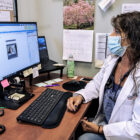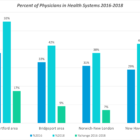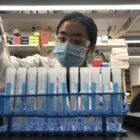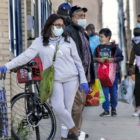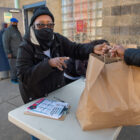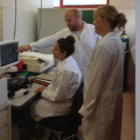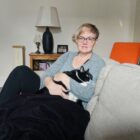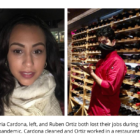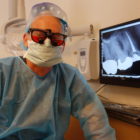Hill Health Center Nurses Make Steep Climb To Vaccinate Seafarers
|
When she became a nurse 10 years ago, Sara Keiling never expected that she’d be wearing a pink hard hat and a life jacket and climbing a steep, 30-foot ladder to vaccinate her patients in a global pandemic. But that’s what she and other nurses from the Cornell Scott-Hill Health Center in New Haven have been doing since May to administer the COVID-19 vaccine to more than 90 crew members on oil tankers that regularly arrive in the port. The nurses provide the shots on board the ships because many of the crew members lack valid visas. The crew members are among 200,000 merchant seafarers worldwide who have been unable to leave their ships in many ports due to strict COVID-19 restrictions. Some have been at sea for more than 18 months, and getting vaccinated means they can finally take shore leave or go home, David Heindel, chairman of the seafarers section of the International Transport Workers’ Federation, said.

